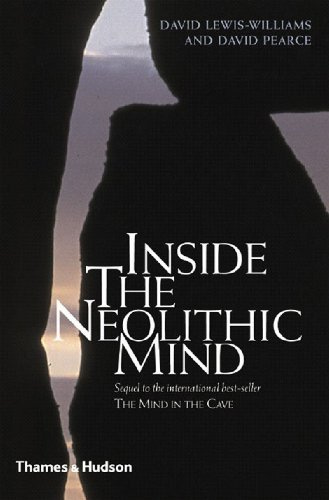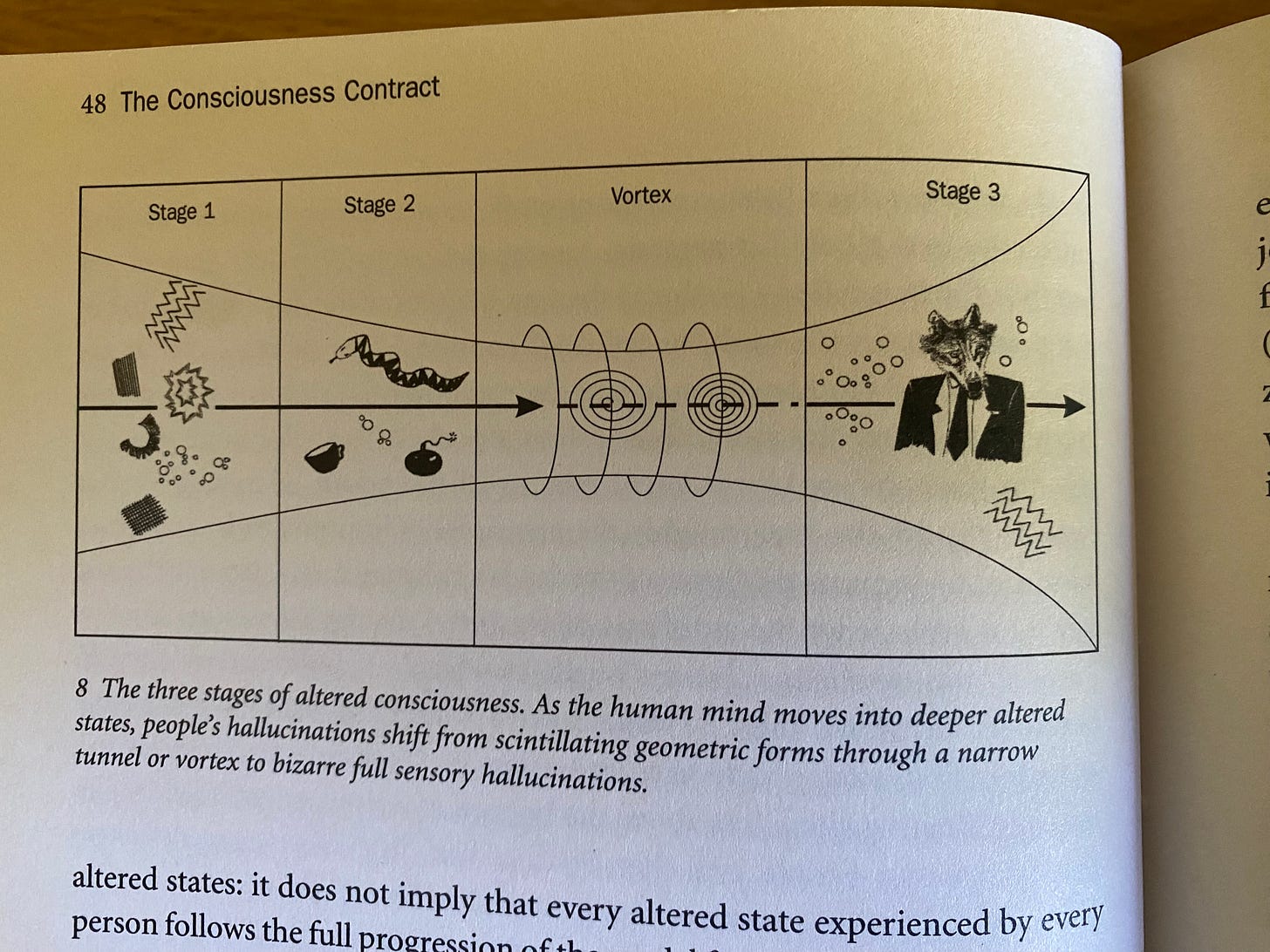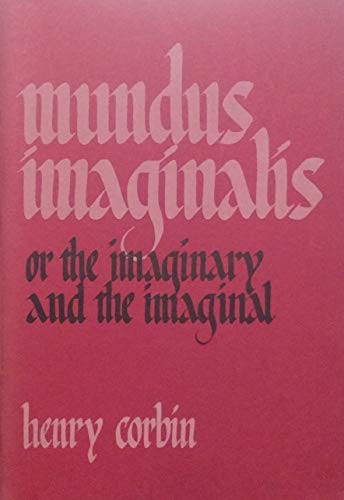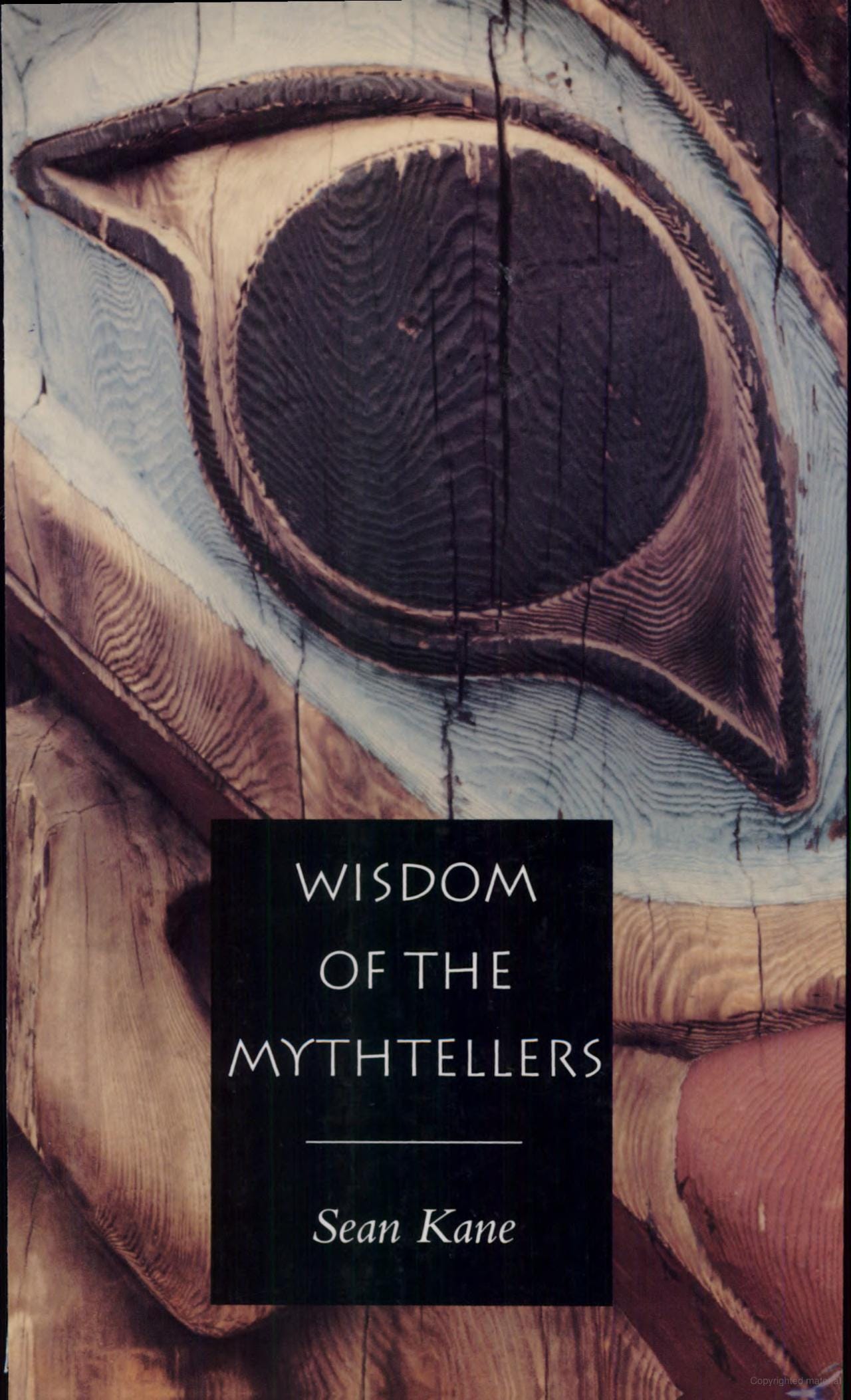This is How to Go Home, a weekly newsletter about imagination and the imaginal realm—the deeper, truer order of meaning that exists beyond the everyday world, which we can learn to enter. If you enjoy this letter, please like and share it; it really makes a difference.
Hello,
Here’s this month’s recommendations roundup—a smattering of resources that I’ve found helpful in understanding imagination and the imaginal realm. Think of this month’s recommendations as a general primer.
David Lewis-Williams and David Pearce, Inside the Neolithic Mind
I mean, why would you not want to read a book that includes this diagram?
If you’ve heard me banging on about this book before, that’s because it’s excellent.
Lewis-Williams and Pearce convincingly argue that altered states of consciousness were fundamental to the emergence of human culture as we know it. And that doesn’t just mean getting off your mash on ayahuasca! The archaeologists highlight that altered states can be accessed through many routes, including repetitive sounds such as drumming, near-death experiences, sensory deprivation, hunger, and fatigue—to name just a few. They suggest that some individuals in each society were particularly gifted at accessing altered states, and that these people acted as shamans, bringing information back from the imaginal in the form of drawings, symbols, stories, and other art forms that communicated a coherent cosmology of the otherworld and its relationship to this material realm.
In other words: modern human society and art are entirely founded upon and (according to Lewis-Williams’s earlier book The Mind in the Cave) owe their original ascendance over the Neanderthals to our capacity to transcend ordinary consciousness, access another realm, and experience a sense of coherent cosmology in and through that realm.
This is a capacity most Western societies now don’t just fail to exercise, but for the most part have lost sight of altogether. A capacity that has become an unknown unknown. Leaving us stranded in a universe that seems fragmented and meaningless.
Personally, I don’t think Lewis-Williams’s work goes quite far enough. He believes that the otherworld from which the earliest humans drew their cosmologies exists inside human skulls. I believe that what’s inside human skulls is the apparatus for accessing something miraculous and wildly expansive that has an objective reality outside of and beyond us.
But if you’re sceptical about the version of imagination I’ve been talking about, and want some hard evidence about how critical it’s been in the history of our species and the world we’ve created—you must read this book.
Henry Corbin, Mundus Imaginalis or the Imaginary and the Imaginal
Probably the most famous work on the imaginal realm is Henry Corbin’s Mundus Imaginalis or the Imaginary and the Imaginal, in which the scholar of Sufism draws a sharp distinction between the imaginary—meaning the kind of fantasies that humans conjure inside our skulls—and the imaginal—an order of reality which, he writes, theosophers in Islam have called “the eighth climate”. Corbin charts a series of voyages to this imaginal realm, as reported in Islamic mystical tales. He describes a widely agreed-upon schema that positions the imaginal realm as an intermediary between the sensory world—our everyday realm—and the world of “pure archangelic Intelligences”. The imaginal is, in other words, somewhere between us and the infinite; it connects us to the infinite. The part of Corbin’s essay that hits hardest for me is this truth: that if you’ve been to the imaginal, you can only describe where you’ve been. You can’t retrace your steps, or give anyone else a map. That’s because every visit to the imaginal requires an invitation from a greater power.
But you can make sure you’re ready for the invite, when it comes. And reading Corbin would be a great way to do that.
The full text is available online, at the link above. And it’s short!
Sean Kane, Wisdom of the Mythtellers
While nobody can give you a map to the imaginal, there have, of course, long been practices to help people find their way there. That, in fact, was traditionally the job of the storyteller: not just to report on the imaginal otherworld, but to use their gifts to transport their audiences there.
And when I compare this conception of storytelling to a modern book event! Ha! I cannot tell you how many nights I’ve spent straining to pay attention while watching authors read bloodlessly from a page of printed matter. And it’s not their fault. I’ve done plenty of that kind of reading myself. It is simply a matter of forgetting why we ever told stories in the first place, and how much more is at stake than our own careers and platforms.
We have to keep a place in our world for the other, older kind of storytelling. Because when a society forgets the original function of a storyteller—to transport people to a very real realm of deeper, truer, more coherent meaning, which makes the everyday world liveable—that society very soon starts to sicken.
If you’re interested in the original function and functioning of storytellers, you must read Sean Kane’s Wisdom of the Mythtellers—a book that will give you a visceral sense of (and probably a deep yearning for) the way our oldest ancestors experienced and storied the world, and related to the imaginal otherworld.
I don’t want to overload you, so I’ll leave it there for now. If you do end up reading any of these books, please let me know how you get on! I would love to hear how they hit you.
Love,
xx Ellie






Haven’t read any of the recommended, but you already hit me hard.
I wouldn't be surprised if older generations had a much higher readiness to begin with. That shamans led yes, storytellers voiced, rituals reminded, but people knew and just needed that little nudge.
My book, a novel of half a million words (I kid you not) tries (and largely fails) to express the forgotten place of celebration in community. Festivals, as the place to visit and be visited by what you call the Otherworld. And how gatherings have slowly been suffocated to death. The first premise was an idea of working toward the last festival. And then Covid happened and all the gatherings of the world were cancelled for real.
Yes my head keeps interfering with what my being knows it has to write.
Thank you…..i fear reading that red booklet, but I will try anyway….